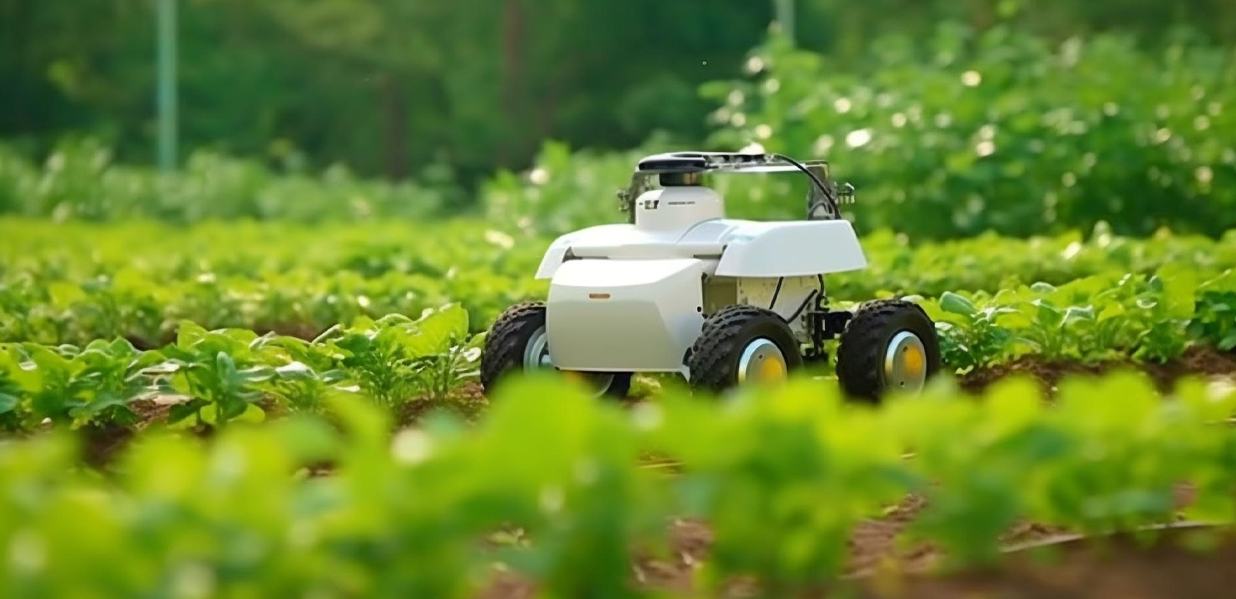


 January 25, 2024
January 25, 2024
 0
0
In agriculture, a profound transformation is unfolding, driven by the advent of precision farming and technology-driven solutions. This revolution is not just a mere change; it represents a fundamental shift in how we approach one of humanity's oldest practices: farming.
We have witnessed the remarkable impact of these technologies on farming efficiency, sustainability, and productivity. This blog will delve into the intricacies of precision farming, exploring how the integration of technologies like Artificial Intelligence (AI), blockchain, and robotics is radically altering the agricultural landscape.
From the individual farmer in the field to the global food supply chain, these advancements are not just futuristic concepts but are practical, real-world solutions shaping the present and future of agriculture.
Let’s see how precision farming and technology-driven agriculture solutions are becoming prominent in agriculture and for farmers and boosting crop yields.
The concept of precision farming marks a significant departure from traditional agricultural practices, which have historically been characterized by extensive fields, manual labor, and a deep dependence on natural conditions. We have observed the transformative potential of precision farming. This approach is not just about employing technology; it's a fundamental paradigm shift in how we approach, manage, and understand agriculture.
Blockchain technology creates an immutable ledger, recording every step of a product's journey from farm to table. This level of traceability is crucial for verifying the safety and quality of agricultural products, allowing for swift action if a food safety issue arises.
Smart contracts automate and enforce agreements between farmers, suppliers, and consumers. These contracts execute transactions automatically upon meeting predefined conditions, ensuring transparency and efficiency in the agricultural supply chain.
In the agricultural sector, the authenticity of products like organic produce can be compromised. Blockchain's traceability features help in verifying the authenticity of these products, reducing the likelihood of fraud.
By providing transparent records of the supply chain, blockchain can help farmers prove the quality and origin of their produce, potentially leading to better pricing and market access.
Blockchain can track and record sustainable farming practices, enabling consumers to make informed choices and supporting farmers who adopt environmentally friendly methods.
These advanced machines are equipped to perform a variety of tasks, from planting seeds and spraying fertilizers to monitoring crop health. Their precision and efficiency are unmatched, significantly reducing the need for human intervention and minimizing errors.
Harvesting robots are designed to pick crops faster and more efficiently than human labor. This not only cuts down on the time and cost involved in harvesting but also reduces the physical strain on workers.
Robotic technology is increasingly being used for weed control. These robots can identify and precisely target weeds, reducing the need for herbicides and thereby promoting a more environmentally friendly approach to weed management.
Robots equipped with sensors can continuously monitor soil conditions and crop growth. This real-time data is invaluable for making informed decisions about irrigation, fertilization, and pest control.
In livestock farming, robots are used for tasks like milking, feeding, and monitoring the health of animals. This automation not only improves efficiency but also ensures consistency and accuracy in animal care.
Infiniticube Services offers innovative technology solutions that integrate seamlessly with these advanced agricultural methods. Our expertise in AI, blockchain, and robotics can help farmers and agribusinesses adopt precision farming, ensuring higher productivity and sustainability.
The blend of Infiniticube’s technological prowess with precision farming, AI, and blockchain tech promises a future of efficient, sustainable, and profitable farming. Contact Us to get started with integration of technology in your farming activities. You can schedule a meeting with our expert and discuss your requirements.

Hello there! I'm Jayesh Chaubey, a passionate and dedicated content writer at Infiniticube Services, with a flair for crafting compelling stories and engaging articles. Writing has always been my greatest passion, and I consider myself fortunate to be able to turn my passion into a rewarding career.
Our newsletter is finely tuned to your interests, offering insights into AI-powered solutions, blockchain advancements, and more.
Subscribe now to stay informed and at the forefront of industry developments.